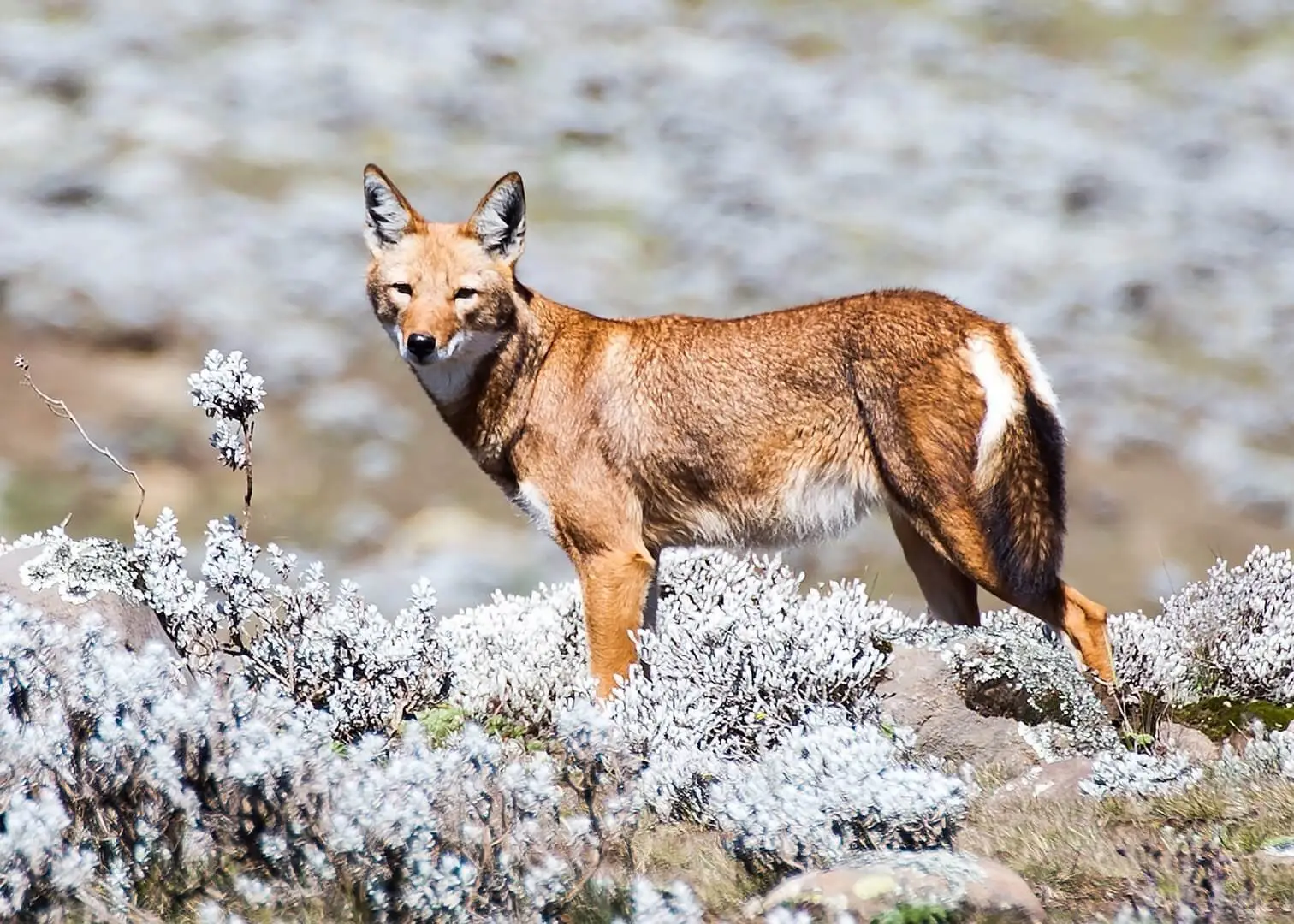Ethiopian wolves, Africa’s rarest predators, are known for being strict carnivores. But in a surprising twist, they’ve been seen sipping nectar from red hot poker flowers, called Kniphofia foliosa, in Ethiopia’s highlands. Sipping these sweet treats might also make them pollinators, a behavior never before documented in large carnivores.
“The wolves lick the flowers like ice cream cones,” Sandra Lai, a wildlife biologist at the University of Oxford, told The New York Times. Lai, who has been studying these wolves as part of the Ethiopian Wolf Conservation Programme, was initially fascinated by anecdotal reports of the animals licking flowers during the flowering season. But in 2023, she and her colleagues decided to follow six wolves from three different packs to observe the behavior more closely. “It’s very exciting,” she said, “because for large carnivores, such as wolves, nectar-feeding is very unusual.”
The discovery, published in Ecology on November 19, 2024, revealed that the wolves not only enjoy the nectar but also end up covered in pollen, leading researchers to speculate that the wolves may be acting as pollinators. “For large carnivores, nectar-feeding is unusual due to the lack of physical adaptations like a long tongue or specialized snout,” Lai explained, adding that the strong, nectar-rich flowers of the red hot poker plants provide an accessible source of sweetness.
The Ethiopian wolf, which can weigh up to fifteen kilograms, is typically known for preying on rodents like the big-headed African mole rat in the mountainous regions of Ethiopia. However, during the blooming season, these wolves appear to switch gears, supplementing their meat-based diet with the sugary treat from flowers that locals use to sweeten coffee and flatbread. Speaking to Science News, Lai explained, “It’s like dessert for the wolves,” referencing how the animals often feast on the nectar after hunting their usual prey.
According to New Scientist, “The behavior is interesting because it shows nectar-feeding and pollination by non-flying mammals might be more widespread than currently recognized,” Lai said. If this is the case, it could change our understanding of pollination in ecosystems that are home to large, ground-based carnivores.
Researchers studying Ethiopian wolves’ nectar-feeding behavior are uncovering surprising insights that could change how we understand these rare animals and their ecosystems. This behavior shows the wolves’ adaptability and the complex relationships they have with their environment. With fewer than 500 Ethiopian wolves left, their survival depends on protecting their fragile highland habitat. Speaking to The New York Times, Lai said, “It’s a unique interaction you won’t find anywhere else,” highlighting the need to preserve this rare ecosystem.
Continued research and strong conservation efforts are key to saving both the wolves and the flowers they may help pollinate.








